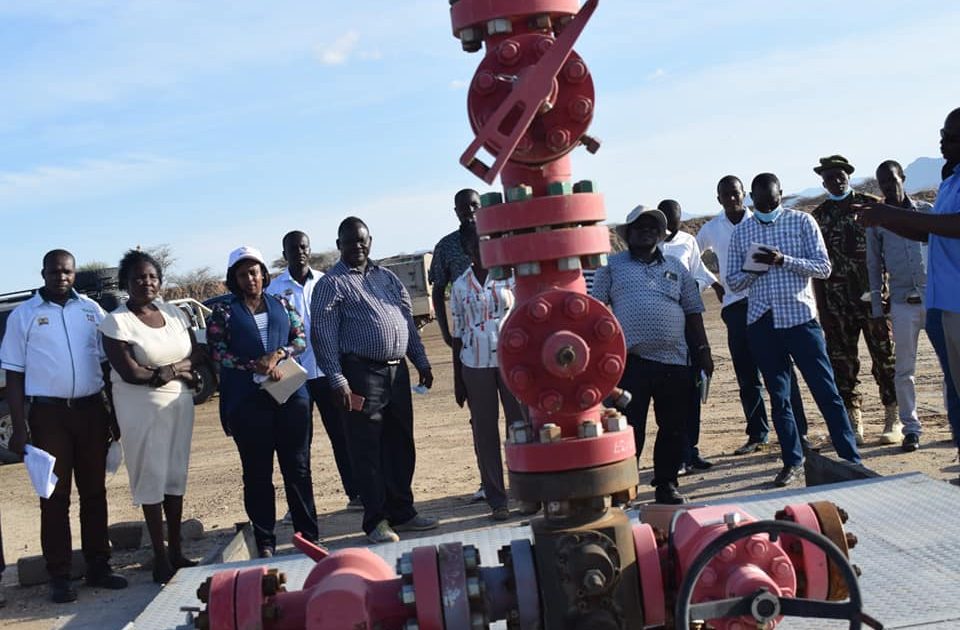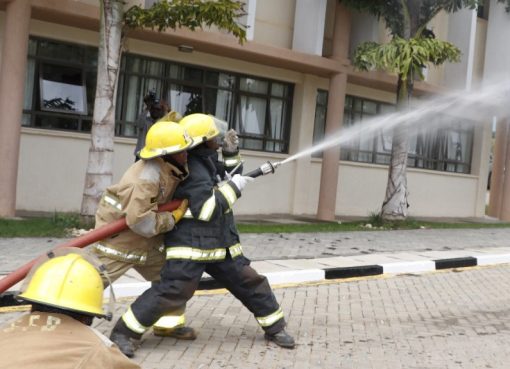A multi-sectoral team of experts in environmental inspection and top officials of the County on Wednesday visited and conducted another inspection of Tullow Oil waste management sites at four oil well sites in the Turkana South Lokichar Basin.
CEC for Tourism, Culture, Environment Energy and Natural Resources Alexander Losikiria, led the team in the Turkana South Lokichar Basin at Etir, Twiga 1, Amosing 1 and Amosing 3.
The inspection aimed at determining the extent of compliance to environmental improvement orders that had been issued against the oil explorers late last year.
Speaking during the visit, Losikiria said that implementation of the improvement orders was non-negotiable since the lifeline of wildlife, environment, human beings and livestock in the areas would be negatively affected by a compromised process.
Losikiria said the County Government environmental inspectors would be visiting the site on a regular basis to aid the attainment of the desired compliance levels before the oil operator is cleared as environmentally friendly.
The chief Officer for the department Stella Lochodo who was also part of the team asked the inspectors to routinely check on the sites that had been cleared so to prevent sliding back to non-compliance status and endangering the areas’ biodiversity.
Lochodo urged the oil operator to join hands with the County Government and national authorities to sensitize the community on safety measures in case of contact with the hazardous wastes.
On his part, Director Environment Clement Nadio said that the operator had been advised to go beyond compliance required for solid waste and install standpipes required to monitor gaseous emissions and detect presence of potentially hazardous hydrocarbon gases before they are emitted in the air.
Turkana County Director of National Environment Management Authority Mr. Jacob Asembo added that all improvement orders come with a timelines that must be adhered to without compromise.
He called upon the operators to prioritize Amosing 1 well site whose liquid waste could easily cause underground seepage hence causing more harm to the areas’ biodiversity.
By Peter Gitonga




